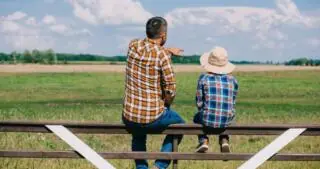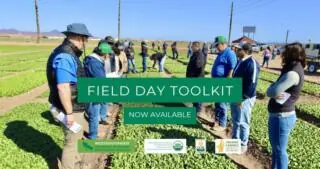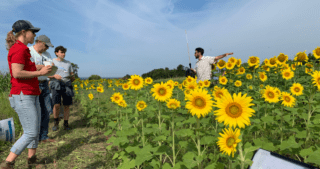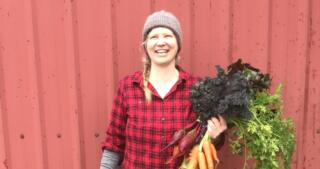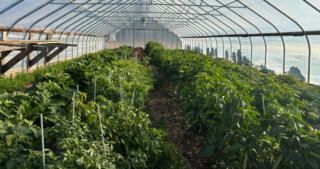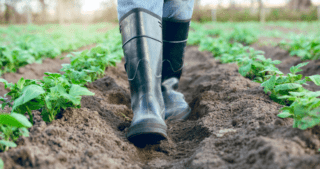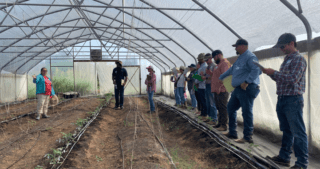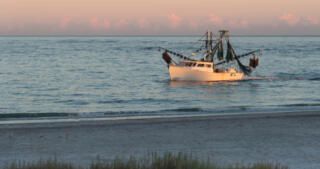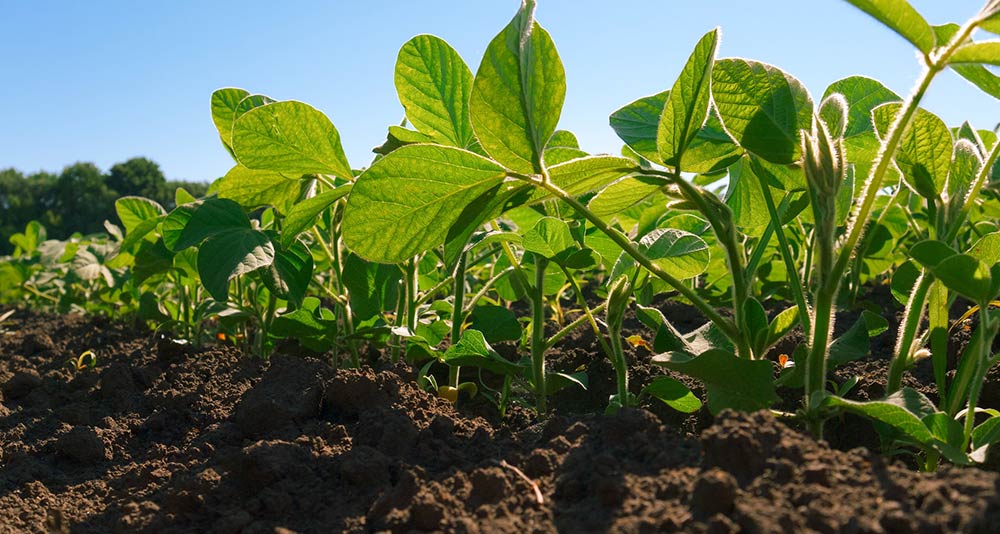Unlocking the Full Potential of Organic Agriculture: OFRF’s Policy Priorities for the Future
At OFRF, we believe that strategic, science-based policies can unlock the full potential of organic farming. Our new Policy Priorities align research investments with market opportunities, enhance technical and financial assistance for organic farmers and farmworkers, and strengthen the incentive structures that reward sustainable stewardship of our natural, social, and economic resources.
OFRF Welcomes Two New Members to Its Board of Directors
We’re excited to welcome Carrie-Anne Palmeri of Nature’s Path Organic Foods and Bryan Wood of Organic Valley/CROPP to OFRF’s Board of Directors.
Looking Back, Planning Ahead: The Farm Bill, Government Funding, and Political Gridlock
As we move into 2025 we’re taking a look back at what happened with agricultural policy in 2024, and what it means for the year ahead. Discover what the legislative calendar has in store, what government funding caps means for organic farmers, and what you can do to insure that organic farming, research, and education is recognized and supported in Washington.
Field Day Toolkit: Build Community Through Sharing Knowledge
Field days provide a unique space for farmers, researchers, and agricultural professionals to come together to share insights, learn from one another, and foster future collaborations. Discover a roadmap and customizable materials to plan, host, and follow up on hosting a successful event at your farm or research site with OFRF’s new Field Day Toolkit.
Is the Future of Organic Food at Risk? Research Funding Holds the Answer
USDA organic research programs like OREI and ORG have fueled groundbreaking innovations in sustainable farming, benefiting farmers and the environment alike. But proposed funding cuts threaten their progress at a critical time.
Why I Spend My Time With OFRF, Relections on 2024 From Our Board President
Farmer and OFRF Board President, April Thatcher, reflects on how her farm's winter routine parallels the transformative work of OFRF in 2024. From farmer-led research and climate resilience to equitable organic farming initiatives, discover how OFRF is shaping the future of sustainable agriculture and empowering farmers nationwide. Learn how you can get involved and make an impact today.
Farmer-Led Trials Program Spotlight: Kennebec Valley Farm
Up on a ridge in rural Maine, Jennifer Barrientos runs Kennebec Valley Farm. She is certified organic and uses no till and biodynamic methods to grow her produce. Jennifer is participating in OFRF's Farmer-Led Trials (FLT) Program to answer the question With technical support from OFRF, Jennifer built out her trial, asking “Will purchased soil amendments result in higher yield and soil health when compared to farm made compost in brassica crops”?
OFRF Launches Organic Stewardship Council to Strengthen Farmer-Centered Programs and Advocacy
OFRF is proud to announce the launch of the Organic Stewardship Council, a new advisory group that ensures farmers remain at the heart of our research, education, and advocacy efforts. Learn how this council will shape the future of organic farming.
How Hosting NRCS Farm Tours Can Open Doors for Organic Farmers
Offering real-world conservation planning for NRCS staff can open doors for organic farmers. Farmshare Austin shares their recent tour experience and tips for hosting your own NRCS farm tour.
Agricultural Runoff: Organic Practices as a Method for Marine Conservation
This month, our Policy & Programs intern takes a deep dive into the intersection of agriculture and marine health, highlighting how agricultural runoff impacts our oceans and estuaries. As a Religious Studies major and Oceanography minor, Jazea's unique perspective bridges land and sea, offering insights into the consequences of conventional farming practices on marine ecosystems, and the solutions that organic systems offer.



